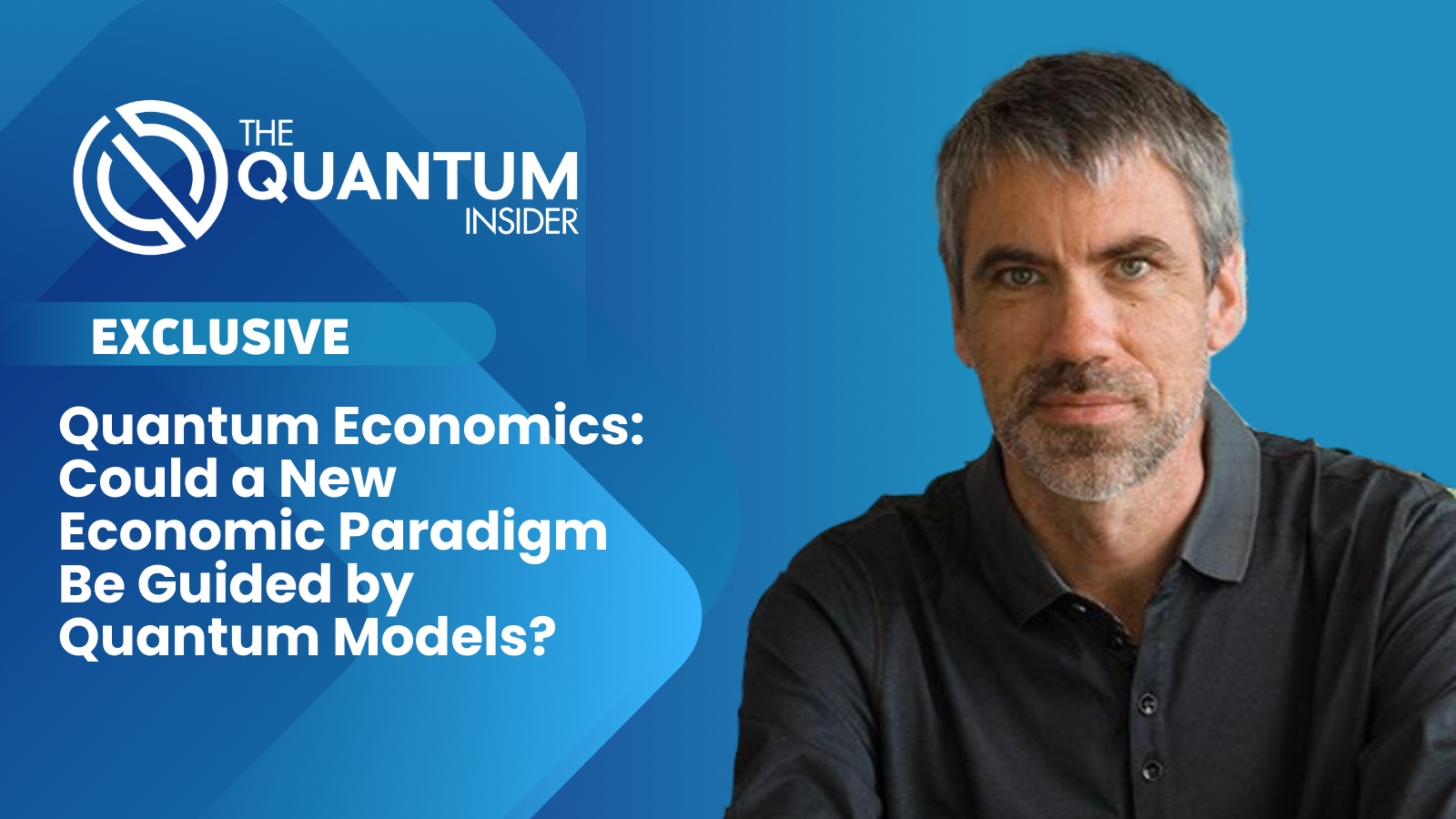The term “quantum” has an uneasy history. Originally referring, of course, to the behavior of atomic and subatomic particles, marketers have splashed the mysterious-sounding adjective on labels for everything from soap to fishing rods to headphones.
Unfortunately, for many in the scientific community, the use of quantum to describe things other than those atomic or subatomic processes leads to suspicion and accusations of hype. So when people hear about quantum economics the reaction is often the same.
They should relax, according to mathematician and author David Orrell, who is advocating for a fair hearing of quantum economics by the scientific community. In fact he argues it is more realistic than the traditional sort.
According to David Orrell, who has written extensively about quantum economics, the heart of quantum economics lies in its critique of classical economic theories, which have long relied on equilibrium models to predict market behaviors. These traditional models fail to capture the nuanced realities of economic systems, often overlooking the inherent uncertainties and the multifaceted nature of economic entities.
Quantum economics, on the other hand, challenges this status quo by relying on models that reflect the more complex and dualistic nature of economic elements, akin to the wave-particle duality observed in quantum particles.

And, by the way, Orrell doesn’t even necessarily disagree with the “there’s nothing quantum about economics” criticism that’s often leveled at those investigating the possibility of quantum models to accurately represent economic conditions and movements.
“It’s really just economics,” Orrell told The Quantum Insider in a recent interview. “Just like we don’t refer to today’s economics as ‘mechanistic economics,’ or something like that. When I say ‘the economy is quantum’ I don’t mean it has anything to do with subatomic particles.”
Instead, Orrell, who earned his doctoral degree in mathematics from the University of Oxford, suggests that the same quantum models that can be useful in describing the physical processes of the very small are also useful in studying the flow of information in economics.
“From an applied math point of view, the quantum model is a mathematical tool and models are just a way of understanding the behavior of some system,” said Orrell. “There are all kinds of different kinds of probability. Classical probability is the simplest one. The next simplest one is quantum probability – and quantum probability is useful for understanding subatomic particles, but it’s also useful for understanding other things. So, I wouldn’t say that the economy is quantum in a physical sense any more than I would say, if I use a system dynamics model to model cell growth in computational biology, that cells are the same as planets, just because calculus was first applied to planetary motion.”
In physics, quantum methods are applied to subatomic particles; in quantum economics, they are applied to things like financial transactions. The key is an obvious pragmatism of using quantum approaches – one that avoids the ontological questions – that can be used to study the economy and make more certain predictions of economic outcomes, said Orrell, whose books include Quantum Economics and Finance: An Applied Mathematics Introduction, and Money, Magic, and How to Dismantle a Financial Bomb: Quantum Economics for the Real World. Quantum models, with their ability to handle uncertainty more effectively, offer a more nuanced approach to understanding economic behaviors, which give them an edge in accuracy over classical models, an edge that can be extended to practical aspects of financial modeling, decision-making processes and the prediction of market trends.
This revelation came about from his own investigations while researching his first (2018) book on the topic, Quantum Economics: The New Science of Money.
“I discovered that people were using quantum models in the social sciences for things like decision making – in other words, how to use a quantum model to take decision making into account,” said Orrell. “Just like in normal economics, rather than making completely rational decisions all the time, we are finding there are all these other things going on in the background that interfere with thought processes.” Such effects can be modelled using the quantum approach, which takes context into account. And the same tools can be applied to things like the flow of money and information in the financial system.
Long History
Orrell also discovered that the study of quantum economics has a relatively long history.
While many might guess that quantum economics is a relatively new field that arose as the hype of quantum technology began to percolate, Orrell said that is untrue. There may have only been a few scholars investigating the field, but they have been involved in research over decades.
“If you look at quantum economics, the very first paper about quantum economics was written back in 1978 by Asghar Qadir, a Pakistani mathematician and physicist,” said Orrell., who added that Qadir published a paper called “Quantum Economics” that explored the similarities between quantum physics and economics
The Future of Quantum Economics
Research into quantum economics is challenging, but perhaps not in the way traditional fields experience challenges.
For Orrell, a significant challenge involves increasing awareness and fostering a more open-minded attitude within the research community regarding the topic.
He sees some signs for a positive future.
For example, the increasing attention to and conversations about quantum computing may have a halo effect for quantum economics, drawing more research interest to that field.
Orrell predicts that as quantum mechanics and quantum computing concepts enter mainstream conversations, this awareness may affect other fields. Indeed, because our conceptions of technology and economic models seem to be intimately linked, it may shift the way we think about economics, said Orrell.
“I think when you consider the ‘bit’ of a traditional computer, it’s all about a zero or a one,” said Orrell. “It’s essentially a ‘yes’ or ‘no,’ a logical, straightforward decision-making process. There’s no room for nuances or subtleties. However, when you shift to considering a qubit, it changes your perspective entirely. A qubit can be likened to a spectrum of colors, offering different shades and complexities. It’s not just zero or one. Qubits are entangled; they interact with each other, introducing uncertainty upon measurement. This fundamental difference is what sets it apart. And as I’ve mentioned, demonstrating that models based on this principle can be profitable and effective is the key point.”
Because it’s often a challenge to find a place for scientists in the area to publish their work, Orrell has also helped found a related journal.
The Quantum Economics and Finance journal, which employs a single-blind peer-review process, provides scientists an opportunity to present and discuss findings at the intersection of quantum methods and economics. The journal covers quantum computational/algorithmic aspects in finance, applications of the quantum formalism to derivative pricing and financial economics economic decision making.
Click here for the online version of the Quantum Economics and Finance.
If you found this article to be informative, you can explore more current quantum news here, exclusives, interviews, and podcasts.




















